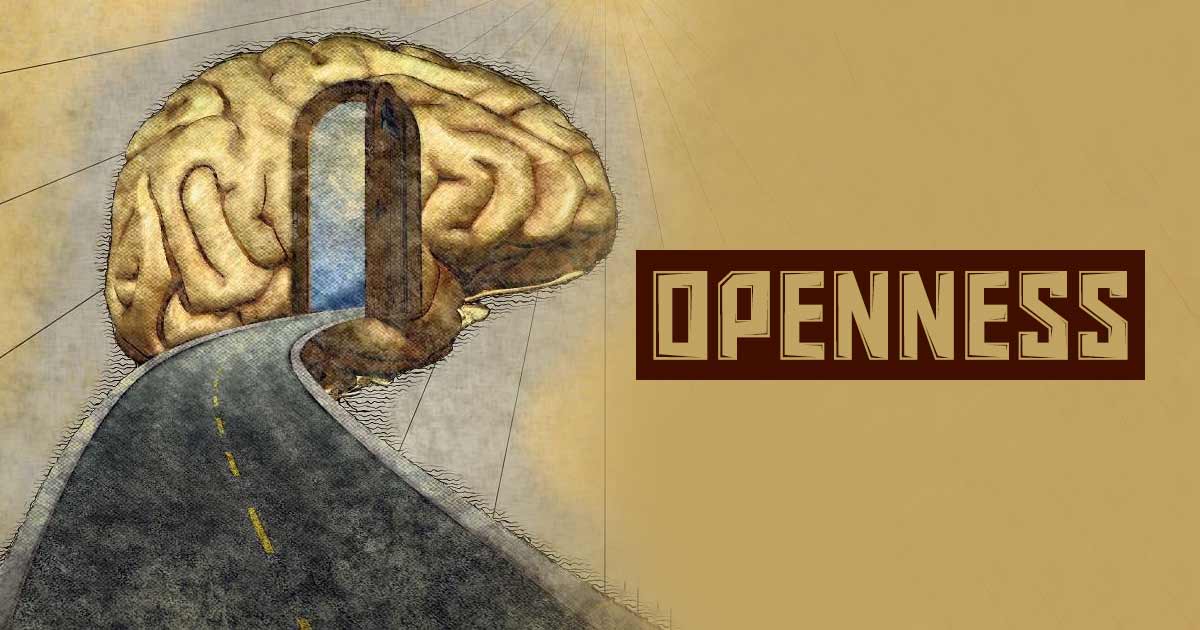Openness is a fundamental personality trait 1 Johnson, M. J., Nabb, S., Booth, S., & Kanaan, M. (2020). Openness Personality Trait Associated With Benefit From a Nonpharmacological Breathlessness Intervention in People With Intrathoracic Cancer: An Exploratory Analysis. Journal of pain and symptom management, 59(5), 1059–1066.e2. https://doi.org/10.1016/j.jpainsymman.2020.01.006 that signifies a genuine willingness to embrace novel ideas and engage in unfamiliar encounters. It serves as a key component within the comprehensive framework of the Big Five 2 Jawinski, P., Markett, S., Sander, C., Huang, J., Ulke, C., Hegerl, U., & Hensch, T. (2021). The Big Five Personality Traits and Brain Arousal in the Resting State. Brain sciences, 11(10), 1272. https://doi.org/10.3390/brainsci11101272 personality traits, known as the five-factor model, which sheds light on the driving forces behind human behavior and individual character.
Individuals with higher levels of openness exhibit a 3 Leavitt, V. M., Buyukturkoglu, K., Inglese, M., & Sumowski, J. F. (2017). Protective personality traits: High openness and low neuroticism linked to better memory in multiple sclerosis. Multiple sclerosis (Houndmills, Basingstoke, England), 23(13), 1786–1790. https://doi.org/10.1177/1352458516685417 propensity to actively pursue diverse experiences, embrace the unfamiliar, and attune to their inner emotions, distinguishing them from those with lower receptivity to novelty.
Their natural inclination towards curiosity and delight in unexpected discoveries is often pronounced. On the other hand, people who are less open to new experiences often prefer sticking to what they already know, like following familiar routines and being around the same people, which can make them hesitant to try novel things out of their regular schedules.
Read In Details About Big Five Personality Traits Here















